Buying Guide for the Best Wallet Trackers
Wallet trackers are small devices that help you keep track of your wallet's location, ensuring you never lose it again. These devices use various technologies to communicate with your smartphone or other devices, allowing you to locate your wallet quickly and easily. When choosing a wallet tracker, it's important to consider several key specifications to ensure you select the best one for your needs. Here are the most important specs to consider and how to navigate them.Tracking TechnologyTracking technology refers to the method the wallet tracker uses to communicate its location to your smartphone or other devices. The most common technologies are Bluetooth and GPS. Bluetooth trackers are typically more affordable and have a shorter range, usually up to 200 feet. They are ideal for finding items within your home or office. GPS trackers, on the other hand, offer real-time location tracking over a much larger area, making them suitable for those who frequently travel or need to track their wallet over long distances. Choose Bluetooth if you need a simple, cost-effective solution for nearby tracking, and GPS if you require extensive range and real-time updates.
Battery LifeBattery life indicates how long the wallet tracker can operate before needing a recharge or battery replacement. This is crucial because a tracker with a short battery life may fail you when you need it most. Battery life can range from a few months to several years. Some trackers come with replaceable batteries, while others have built-in rechargeable batteries. If you prefer low maintenance, opt for a tracker with a long-lasting battery or one with replaceable batteries. If you don't mind recharging, a tracker with a rechargeable battery might be more convenient.
Size and DesignThe size and design of the wallet tracker are important because it needs to fit comfortably in your wallet without adding bulk. Trackers come in various shapes and sizes, from slim cards to small keychain-like devices. A slim, card-shaped tracker is ideal for those who want to keep their wallet sleek and minimalistic. If you don't mind a bit of extra bulk, a slightly larger tracker might offer additional features or better battery life. Consider your wallet's size and how much space you can spare for the tracker when making your choice.
RangeRange refers to the maximum distance at which the tracker can communicate with your smartphone. This is particularly important for Bluetooth trackers, as their range is limited compared to GPS trackers. Bluetooth trackers typically have a range of up to 200 feet, while GPS trackers can cover much larger distances. If you often misplace your wallet within your home or office, a Bluetooth tracker with a shorter range will suffice. However, if you need to track your wallet over longer distances, such as when traveling, a GPS tracker with an extensive range is a better option.
CompatibilityCompatibility refers to whether the wallet tracker can work with your smartphone or other devices. Most trackers are compatible with both iOS and Android devices, but it's essential to check before purchasing. Some trackers may offer additional features or better integration with specific operating systems. Ensure that the tracker you choose is compatible with your device and any other devices you plan to use for tracking. This will ensure a seamless experience and access to all the tracker's features.
Additional FeaturesAdditional features can enhance the functionality of your wallet tracker. Common features include two-way finding, which allows you to use your wallet tracker to locate your phone, and separation alerts, which notify you if your wallet and phone become separated. Some trackers also offer crowd-sourced location tracking, where other users' devices can help locate your wallet if it's out of range. Consider which additional features are important to you and how they can improve your tracking experience. Choose a tracker that offers the features that best meet your needs.
![BFADEHA 2026 [Apple MFi Certified]](https://images-proxy.bestreviews.guide/mramwbLjs7t6bjsJ7dUihfQMzec=/0x150/https://m.media-amazon.com/images/I/4169Vg8thlL._AC_CX679_.jpg)
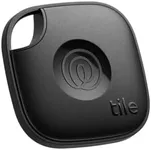
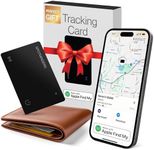
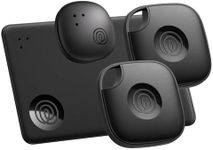
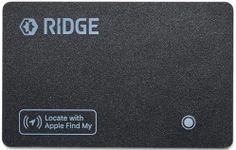
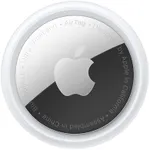
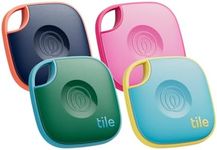

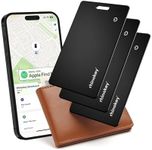

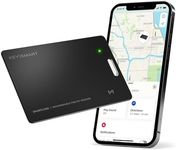

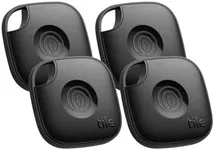
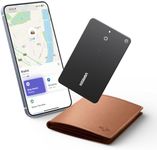
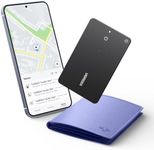
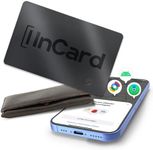
![MSEBENT Slim Air Tag Wallet Tracker Card, [Apple MFi Certified], Wireless Charging, Work with Apple Find My, IP67 Waterproof, Item Locator for Keys, Bags, Passport, iOS Only, 1 Pack](https://images-proxy.bestreviews.guide/RILtnKOl-_ZcPDyqVQidDOcVuUA=/0x150/https://m.media-amazon.com/images/I/41dViHYrPPL._AC_CX679_.jpg)





